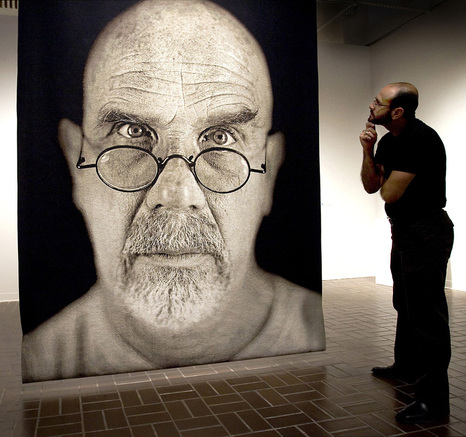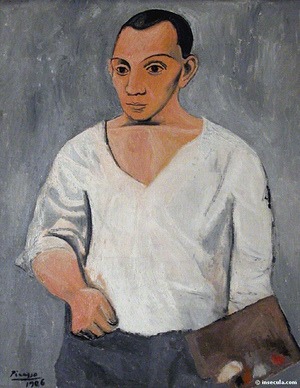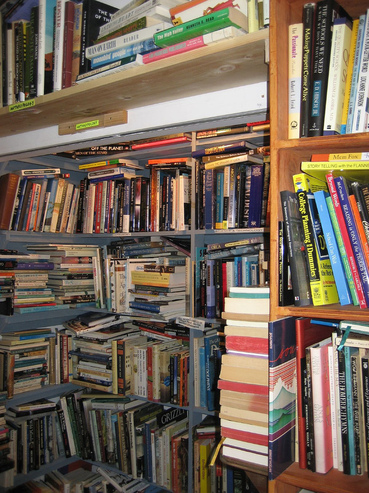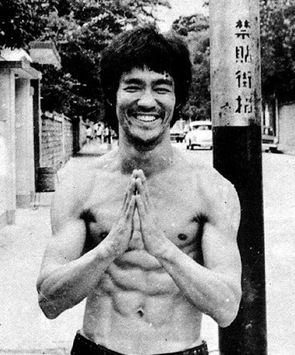|
I like the idea that all ideas need to have actions and facts tied to them. Without that, they are just wishes. No idea, action, business concept should ignore scientific knowledge.
D ‘Let no one ignorant of geometry enter here,’ said Plato to his students, referring to his school, the Academy; and thereafter no philosophy has ever seriously proposed to ignore scientific knowledge. If philosophy, like religion, has its deepest roots in human ‘finiteness’ – the fact that for us mortals time is limited, and that we are the only beings in this world to be fully aware of this fact – it goes without saying that the question of what to do with our time cannot be avoided. As distinct from trees, oysters and rabbits, we think constantly about our relationship to time: about how we are going to spend the next hour or this evening, or the coming year. And sooner or later we are confronted – sometimes due to a sudden event that breaks our daily routine – with the question of what we are doing, what we should be doing, and what we must be doing with our lives – our time – as a whole. This thought process has three distinct stages: a theoretical stage, a moral or ethical stage, and a crowning conclusion as to salvation or wisdom and this leads to two fundamental questions... These two questions – the nature of the world, and the instruments for understanding it at our disposal as humans –"these" constitute the essentials of the theoretical aspect of philosophy. To be a sage, by definition, is neither to aspire to wisdom or seek the condition of being a sage, but simply to live wisely, contentedly and as freely as possible, having finally overcome the fears sparked in us by our own finiteness. To find one’s place in the world, to learn how to live and act, we must first obtain knowledge of the world in which we find ourselves. This is the first task of a philosophical ‘theory’ A Brief History of Thought: A Philosophical Guide to Living by Luc Ferry So, good news/bad news: good news that I’m progressing; bad news that life is short and art is long.2/20/2013
...I find myself feeling like I’m in a bit of a race to get down on paper the way I really feel about life—or the way it has presented to me. And because it has presented to me very beautifully, this is hard. It is technically very hard to show positive manifestations.
But I can look back at the way I thought and felt even as a little kid and there was a lot of wonder there, and openness to the many sides of life—the way that beauty and ugliness co-present, for example, or the way that tragedy might be enshrouded in something really funny, or vice versa—and I feel like I’ve only barely scratched the surface so far in what I’ve been able to write. And I have finally realized that, you know, it’s not a given that my lifespan will accommodate my writing aspirations. It could be that it would take me 12 more books at six years each to get it—which means I would have to live to be 126. Which I fully intend to do, of course. But it seems to me that there are certain thoughts and vignettes and attitudes that I have always had the desire to represent—but that I’m only now picking up the chops and/or confidence to pull off. So, good news/bad news: good news that I’m progressing; bad news that life is short and art is long. George Saunders "That's been one of my mantras -- focus and simplicity. Simple can be harder than complex: You have to work hard to get your thinking clean to make it simple. But it's worth it in the end because once you get there, you can move mountains."
"Picasso had a saying: 'Good artists copy, great artists steal.' We have always been shameless about stealing great ideas...I think part of what made the Macintosh great was that the people working on it were musicians, poets, artists, zoologists and historians who also happened to be the best computer scientists in the world." Steve Jobs-- 1994 Seth (Godin) told me: “People have this idea that either you’re a cog in the machine, just working for the man, or you’re out singing onstage, making your living that way. It seems like there’s a lot in between—there are a lot of people who may not have what it takes to become the next famous musician, but who are finding ways to make money with what they care about.
“Think about this restaurant right now. It’s not really like any restaurant in New York City that I’ve ever been in. Where did it come from? It’s not here because someone made chairs or china, which are available to everyone. It’s here because someone’s putting on a show. And they’re charging many times what they would get if they were selling it from a street cart. “I’m saying that’s ‘art.’ Someone didn’t just copy it. Someone had to take various components and put them together, to create something that was worth experiencing, and sharing, and talking about. On the back of that, you can build a business that makes tons of money selling food. “The art here, the experience of seeing it, that’s free. Anyone can walk in this place, look around, get it, and leave. The souvenir part—the experience part, the owning-the-table-for-two-hours part—that’s what they make money from. “McDonald’s fooled us into believing that the purpose of industry was to churn out standardized quantity at low cost. This place reminds us that, no, there’s an alternative to racing to the bottom. And that is, racing to the top.” The Education of Millionaires: It's Not What You Think and It's Not Too Late by Michael Ellsberg  “The advice I like to give young artists, or really anybody who'll listen to me, is not to wait around for inspiration. Inspiration is for amateurs; the rest of us just show up and get to work. If you wait around for the clouds to part and a bolt of lightning to strike you in the brain, you are not going to make an awful lot of work. All the best ideas come out of the process; they come out of the work itself. Things occur to you. If you're sitting around trying to dream up a great art idea, you can sit there a long time before anything happens. But if you just get to work, something will occur to you and something else will occur to you and something else that you reject will push you in another direction. Inspiration is absolutely unnecessary and somehow deceptive. You feel like you need this great idea before you can get down to work, and I find that's almost never the case.”
― Chuck Close The best advice is not to write what you know, it’s to write what you like. Write the kind of story you like best—write the story you want to read. The same principle applies to your life and your career: Whenever you’re at a loss for what move to make next, just ask yourself, “What would make a better story?
The manifesto is this: Draw the art you want to see, start the business you want to run, play the music you want to hear, write the books you want to read, build the products you want to use—do the work you want to see done. Steal Like an Artist: 10 Things Nobody Told You About Being Creative by Austin Kleon I have become fascinated with the concept of strange loops,
Implicit in the concept of Strange Loops is the concept of infinity and I fascinated by the ideas of fugue and canon within a narrative structure. Think of the drawings by Escher. "The "Strange Loop" phenomenon occurs whenever, by moving upwards (or downwards) through the levels of some hierarchical system, we unexpectedly find ourselves right back where we started. (Here, the system is that of musical keys.) Sometimes I use the term Tangled Hierarchy to describe a system in which a Strange Loop occurs. As we go on, the theme of Strange Loops will recur again and again. Sometimes it will be hidden, other times it will be out in the open; sometimes it will be right side up, other times it will be upside down, or backwards. "Quaerendo invenietis" is my advice to the reader." - Godel, Escher, and Bach. I don't remember where I got the quote below, but it fascinates me. The question arises, "Can a brain be understood, in some objective sense, by an outsider?" Minds and Thoughts. The preceding poems bring up in a forceful way the question of whether languages, or indeed minds, can be "mapped" onto each other. How is communication possible between two separate physical brains: What do all human brains have in common? A geographical analogy is used to suggest an answer. The question arises, "Can a brain be understood, in some objective sense, by an outsider?" D  “You must stay drunk on writing so reality cannot destroy you.” ― Ray Bradbury, Zen in the Art of Writing From my adventures in the subculture of addiction recovery, I’d learned that the trajectory of one’s life often boils down to a few identifiable moments—decisions that change everything. I knew all too well that moments like these were not to be squandered. Rather, they were to be respected and seized at all costs, for they just didn’t come around that often, if ever. Even if you experienced only one powerful moment like this one, you were lucky. Blink or look away for even an instant and the door didn’t just close, it literally vanished. In my case, this was the second time I’d been blessed with such an opportunity, the first being that precious moment of clarity that precipitated my sobriety in rehab. Looking into the mirror that night, I could feel that portal opening again. I needed to act. But how?
In truth, I needed an entirely new lifestyle. Finding Ultra: Rejecting Middle Age, Becoming One of the World's Fittest Men, and Discovering Myself by Rich Roll Bruce, of course, was a firm believer in the scientific method in not only his philosophy, but also its application to combat. He once said in an interview: "We should regard our martial art training as scientific and every energy and capacity can be explained by science. It is not mystical at all. Therefore, everything should logical."[26] And: "In any physical movement there is always a most efficient and alive manner to accomplish the purpose of the performance for each individual. That is, in regard to proper leverage, balance in movement, economical and efficient use of motion and energy, etc. Live, efficient movement that liberates is one thing; sterile, classical sets that bind and condition is another."
Bruce Lee: Dynamic Becoming by James Bishop |
Click to set custom HTML
Categories
All
Disclosure of Material Connection:
Some of the links in the post above are “affiliate links.” This means if you click on the link and purchase the item, I will receive an affiliate commission. Regardless, I only recommend products or services I use personally and believe will add value to my readers. I am disclosing this in accordance with the Federal Trade Commission’s 16 CFR, Part 255: “Guides Concerning the Use of Endorsements and Testimonials in Advertising.” |
Photos from Wesley Oostvogels, Thomas Leuthard, swanksalot, Robert Scoble, Lord Jim, Pink Sherbet Photography, jonrawlinson, MonsterVinVin, M. Pratter, greybeard39, Stepan Mazurov, deanmeyersnet, Patrick Hoesly, Lord Jim, Dcysiv Moment, fdecomite, h.koppdelaney, Abode of Chaos, pasa47, gagilas, BAMCorp, cmjcool, Abode of Chaos, faith goble, nerdcoregirl, Adrian Fallace Design & Photography, jmussuto, Easternblot, Jeanne Menjoulet & Cie, aguscr, h.koppdelaney, Saad Faruque, ups2006, Unai_Guerra, erokism, MsSaraKelly, Jem Yoshioka, tony.cairns, david drexler, Reckless Dream Photography, Raffaele1950, kevin dooley, weegeebored, Cast a Line, Zach Dischner, Eddi van W., kmardahl, faungg's photo, Alan Light, acme, Evan Courtney, specialoperations, Mustafa Khayat, darkday., Orin Zebest, Robert S. Donovan, disparkys, kennethkonica, aubergene, Nina Matthews Photography, infomatique, Patrick Hoesly, j0sh (www.pixael.com), SmithGreg, brewbooks, tjsander, The photographer known as Obi, Simone Ramella, striatic, jmussuto, m.a.r.c., jfinnirwin, Nina J. G., pellesten, dreamsjung, misselejane, Design&Joy, eeskaatt, Bravo_Zulu_, No To the Bike Parking Tax, Kecko, quinn.anya, pedrosimoes7, tanakawho, visualpanic, Brooke Hoyer, Barnaby, Fountain_Head, tripandtravelblog, geishaboy500, gordontarpley, Rising Damp, Marc Aubin2009, belboo, torbakhopper, JarleR, aakanayev, santiago nicolau, Official U.S. Navy Imagery, chinnian, GS+, andreasivarsson, paulswansen, victoriapeckham, Thomas8047, timsamoff, ConvenienceStoreGourmet, Jrwooley6, DeeAshley, ethermoon, torbakhopper, Mark Ramsay, dustin larimer, shannonkringen, Stf.O, Todd Huffman, B Rosen, Lord Jim, Jolene4ever, Ben K Adams, Clearly Ambiguous, Daniele Zedda, Ryan Vaarsi, MsSaraKelly, icebrkr, jauhari, ajeofj3, jenny downing, Joi, GollyGforce, Andrew from Sydney, Lord Jim, 'Retard' (says University of Missouri), drukelly, Sullivan Ng, jdxyw, infomatique, AlicePopkorn, RAA408, Abode of Chaos, SaMaNTHa NiGhTsKy, as always..., D@LY3D, Angelo González, the sugary smell of springtime!, Marko Milošević, pedrosimoes7, MartialArtsNomad.com, 401(K) 2013, Sigfrid Lundberg, MoneyBlogNewz, NBphotostream, the stag and doe, Jemima G, bablu121, .reid., jared, EastsideRJ, Alex Alvisi, Marie A.-C., geishaboy500, modomatic, starsnostars., Hardleers, Sarah G..., donielle, Danny PiG, bigcityal, || UggBoy♥UggGirl || PHOTO || WORLD || TRAVEL ||, -KOOPS-, seafaringwoman, kingkongirl, Richard Masoner / Cyclelicious, Hans Gotun, gruntzooki, Duru..., Vectorportal, Peter Hellberg, Alexandre Hamada Possi, Santi Siri, Joshua Rappeneker, a little tune, Patricia Mangual, erokism, woodleywonderworks, Philippe Put, Purple Sherbet Photography, Abode of Chaos, greybeard39, swanksalot, greyloch, Omarukai, Marc_Smith, SLPTWRK, Peter Alfred Hess, illum, MarioMancuso, willc2, _titi, Lightsurgery, Rennett Stowe, feverblue, Esteman., Keith Allison, DCist, h.koppdelaney, Mike Deal aka ZoneDancer, Jos Dielis, The Wandering Angel, Nathaniel KS, MsSaraKelly, Frank Lindecke, Kara Allyson, JeremyGeorge, deoman56, gagilas, Xoan Baltar, Luke Lawreszuk, Eric-P, fdecomite, lorenkerns, masochismtango, Adrian Fallace Design & Photography, anarchosyn, -= Bruce Berrien =-, radiant guy, Free Grunge Textures - www.freestock.ca, El Bibliomata, antmoose, Pedro Belleza, Fitsum Belay/iLLIMETER, Nathan O'Nions, denise carbonell, swanksalot, ▓▒░ TORLEY ░▒▓, Marco Gomes, Justin Ornellas, jenni from the block, René Pütsch, eddieq, thombo2, Ben Mortimer Photography, :moolah, ideowl, joaquinuy, wiredforlego, Rafa G. _, derrickcollins, Fishyone1, ben pollard, Admiralspalast Berlin, Georgio, garybirnie.co.uk, fiskfisk, MoreFunkThanYou, xJason.Rogersx, kevin dooley, David Holmes2, Kris Krug, JD Hancock, Images_of_Money, andriux-uk events, Tyfferz, decafinata, jonrawlinson, isado, Lohan Gunaweera, Derek Mindler, Mike "Dakinewavamon" Kline, themostinept, kiwanja, erokism, dktrpepr, Keoni Cabral, denise carbonell, Neal., tonystl, ericmay, Ally Mauro, erokism, Georgie Pauwels, anitakhart, Ivan Zuber, r2hox, Aka Hige, badjonni, striatic, Arry_B, 401(K) 2012, pvera, Lord Jim, Dredrk aka Mr Sky, TerryJohnston, eschipul, wiredforlego, Yuliya Libkina, fabbio, Justin Ruckman, David Boyle, Matthew Oliphant, Keoni Cabral, Thaddeus Maximus, Abode of Chaos, matthias hämmerly, dospaz, LadyDragonflyCC - >;<, CassiusCassini2011, Abode of Chaos, Jorge Luis Perez, infomatique, Mark Gstohl, AliceNWondrlnd, ç嬥x, ssoosay, striatic, NASA Goddard Photo and Video, feverblue, MsSaraKelly, kohlmann.sascha, Vox Efx, country_boy_shane, paularps, Gage Skidmore, HawkinsSteven, Cam Switzer, Arenamontanus, anieto2k, Georgie Pauwels, my camera and me, Lord Jim, nolifebeforecoffee, Joris_Louwes, Kemm 2, VinothChandar, DeeAshley, brewbooks, craigemorsels, Boris Thaser, Poster Boy NYC, ssoosay, guzzphoto, sachac, chefranden, Wanja Photo, Samuel Petersson, onlyart, samsaundersleeds, Ghita Katz Olsen, mcveja, matthewwu88, Victor Bezrukov, JasonLangheine, erokism, vitroid, thethreesisters, charlywkarl, Sharon & Nikki McCutcheon, Ol.v!er [H2vPk], mikecogh, tec_estromberg, noii's, nicholaspaulsmith, Tucker Sherman, Phil Grondin, Cea., Randomthoughtstome, dcobbinau, rafeejewell, pedrosimoes7, lumaxart, marfis75, roland, RLHyde, David Boyle in DC, Sigfrid Lundberg, Thomas Geiregger, Uberto, bgottsab, Conor Lawless, phphoto2010, Steven | Alan, ckaroli, dweekly, AleBonvini, 드림포유, die.tine, MsSaraKelly, equinoxefr, Sarabbit, Abode of Chaos, Galantucci Alessandro, LadyDragonflyCC - >;< - Spring in Michigan!, Alan Gee, Johan Larsson, SoulRider.222, Robert S. Donovan, amslerPIX, cfaobam, Amy L. Riddle, Bladeflyer, Blomstrom, pumpkincat210, Lord Jim, Symic, kevin dooley, pixelthing, Nelson Minar, Fraser Mummery, The Booklight, edenpictures, everyone's idle, betsyweber, h.koppdelaney, ark, Ben Fredericson (xjrlokix), dphiffer, Jeff Kubina, istolethetv, dullhunk, Tambako the Jaguar, fdecomite, The Daily Ornellas, Badruddeen, kevindooley, mnem, Reyes, sadaton, Mary..K, akunamatata, Dennis Vu Photography for Unleashed Media, mitch98000, ganesha.isis, maria j. luque, doneastwest, w00tdew00t, kevindooley, NightFall404, Infrogmation, nandadevieast, darkpatator, Christos Tsoumplekas, sicamp, Hello Turkey Toe, cliff1066™, James Jordan, gailf548, andrew_byrne, infomatique, graphia, -= Bruce Berrien =-, aphrodite-in-nyc, jmussuto, eiko_eiko, Emily Jane Morgan, _Imaji_, kait jarbeau is in love with you, Leeks, h.koppdelaney, paul-simpson.org, Pinti 1, Namlhots, -KOOPS-









 RSS Feed
RSS Feed

